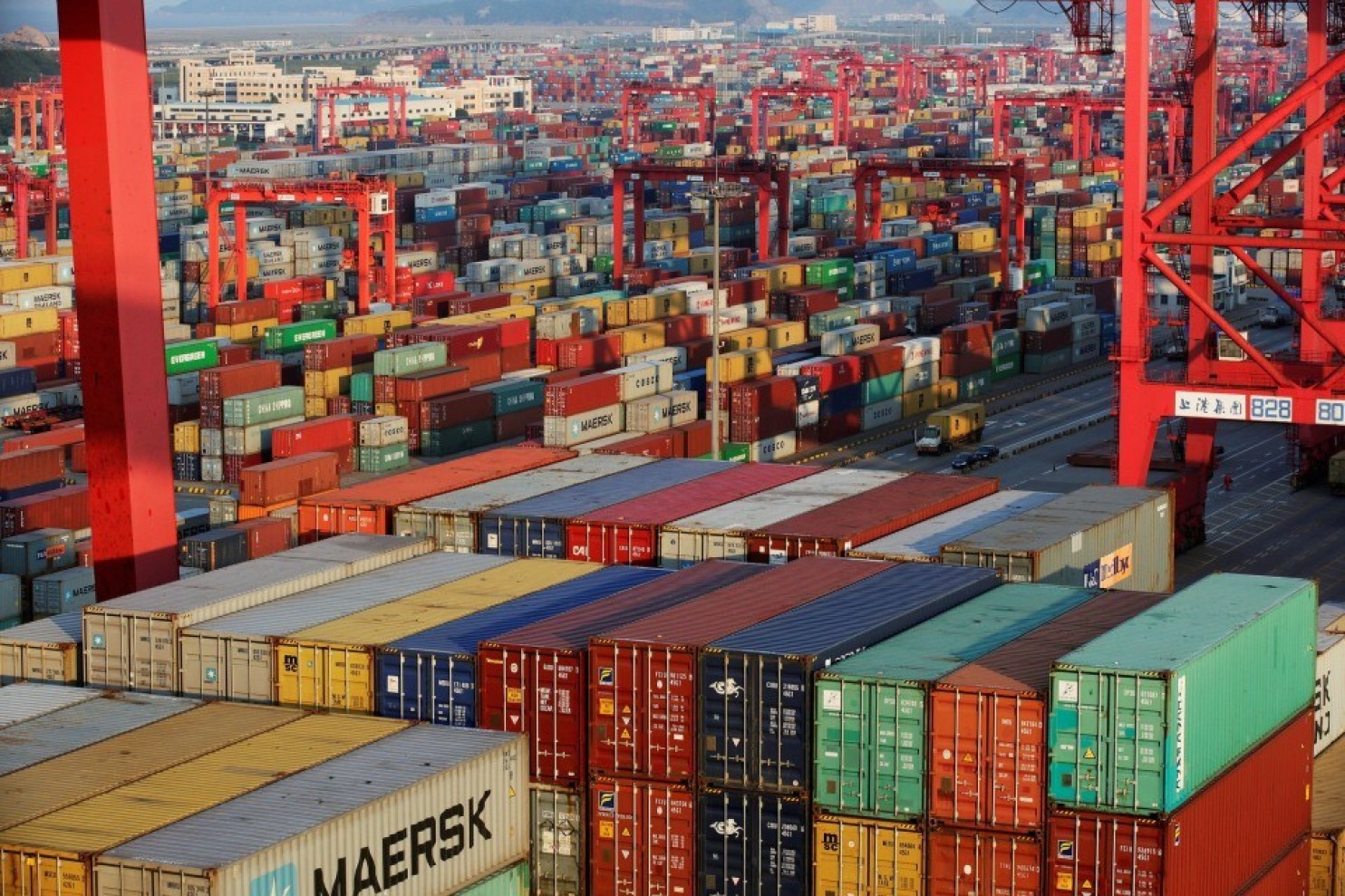
The New York Times reports: "President Trump is confident that the United States is winning its trade war with China. But on both sides of the Pacific, a bleaker recognition is taking hold: The world's two largest economies are in the opening stages of a new economic Cold War, one that could persist well after Mr. Trump is out of office. 'This thing will last long,' Jack Ma, the billionaire chairman of Alibaba Group, warned a meeting of investors on Tuesday in Hangzhou, China. 'If you want a short-term solution, there is no solution.' Mr. Trump intensified his trade fight this week, imposing tariffs on $200 billion worth of Chinese goods and threatening to tax nearly all imports from China if it dared to retaliate. His position has bewildered, frustrated and provoked Beijing, which has responded with its own levies on American goods."
The Wall Street Journal reports: "The dollar fell to its lowest level in more than two months Thursday, as fresh hopes that the U.S. and China can avoid an all-out trade war boosted investors' risk appetite. The WSJ Dollar Index, which measures the U.S. currency against a basket of 16 others, was recently down 0.4% at 88.87, its lowest level since early August. The measure is off more than 2% from its August highs. An intensifying trade conflict between the world's two largest economies has buoyed the dollar in recent months, as many investors believe the U.S. will be less damaged than other countries in an all-out trade war. A more gradual U.S. approach to imposing tariffs on Chinese goods, however, has sparked hopes that the U.S. and China may eventually resolve the issue, encouraging investors to cut back on safe-haven bets such as the dollar and put their money to work in U.S. stocks and beaten-up emerging-market assets."
CNN reports: "In September 1999, an underground photography exhibition titled 'Wushirenfei' was shut down by Shanghai police on its opening afternoon. To this day, it is unclear what precisely had irked the city's authorities. Perhaps it was the image of four women ogling a man's crotch or the photograph of books balanced on brightly-colored plastic phalluses. Or perhaps it was the prospect of 15 of Shanghai's most exciting young artists exhibiting their work beyond the gaze of government-controlled institutions. Such closures were relatively common in China during the 1990s, with the state evidently wary of contemporary art. But things have changed dramatically, and, this week, the shuttered exhibition is being re-staged at Photofairs Shanghai, a sprawling annual art fair which last year attracted more than 30,000 visitors."
- 2018-09-19 Trump’s trade war still doesn’t scare China
- 2018-09-18 China's military and economic power 'cannot be denied' and US 'has to make room'
- 2018-09-17 China warns it won’t just play defense in a trade war with the US
- 2018-09-16 A Roadmap for the Great US-China Divorce
- 2018-09-14 U.S. Automakers Are Taking Hits From Both Sides in Trump's Trade War With China
- 2018-09-13 China welcomes US offer of talks as tariffs loom on $200 billion of goods
- 2018-09-12 United States 'deeply troubled' by alleged Chinese crackdown in Xinjiang
- 2018-09-11 China does away with family planning offices
- 2018-09-10 China vows to retaliate if the US takes any new steps on trade
- 2018-09-09 Pakistan rethinks its role in Xi's Belt and Road plan
- The New York Times Trump Has Put the U.S. and China on the Cusp of a New Cold War
- The Wall Street Journal Dollar Falls on Hopes U.S., China Can Resolve Trade Spat
- CNN Shanghai takes center stage in China's burgeoning photography scene
- CNBC China urges the US to show sincerity and take steps to correct its behavior when it comes to trade
- Bloomberg China Races to Get Goods to the U.S. Before Tariffs Hit
- The Wall Street Journal A Bumper Year for Chinese IPOs Feels Like Anything But
- The Economist America and China are in a proper trade war
- Fortune Trump Is Winning His Trade War With China. Here's Why That Might Not Last
- CNBC Inside China's strategy in the soybean trade war
- NBC News Russia, China embrace uneasily, aim for 'desirable world order'
- Forbes China's Big Three Airlines Are On A Fast Track To Overtake U.S.'s Big Three Within A Few Years
- NBC News Alibaba's Jack Ma says Trump's trade war killed promise of 1 million U.S. jobs
- The New Yorker Don't Underestimate the Danger of Trump's Trade War with China
- The New York Times Learning to Survive Without WeChat
- The Wall Street Journal California Farmers Are Trade-War Casualties
- Council on Foreign Relations The Middle East Doesn't Take China Seriously
- Financial Times Donald Trump's trade wars: what China should do next
- Bloomberg Trump Makes It Harder for China to Cut a Deal
- The National Interest Asia's Next Crisis: The Coming Conflict Over Taiwan?
- Financial Times Will the US-China trade war impact global growth?